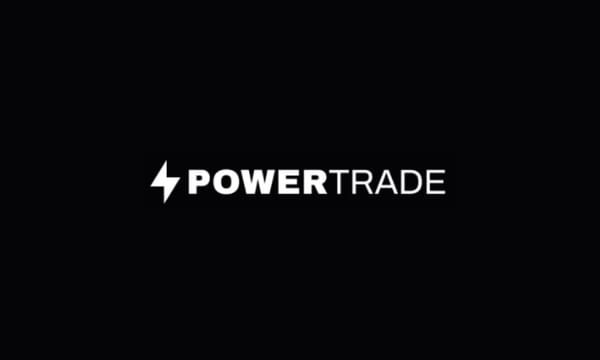Phemex announces support for Solana [SOL]
![Phemex announces support for Solana [SOL]](/content/images/size/w1200/2021/08/sol_ocean_neutral.jpg)
The prevalent narrative in the cryptocurrency world this year has revolved around the concept of decentralized finance or DeFi. Blockchain technology has ushered in possibilities of much-needed transformation in the global financial system. DeFi is taking segments of traditional finance and changing them into trustless and transparent protocols with the help of smart contracts and token.
Decentralized finance [DeFi] has emerged as a transparent form of modern finance that revolutionizes the archaic centralized infrastructure. DeFi can potentially transform monetary banking services, alternative savings, P2P lending platforms, and decentralized exchanges even in its nascent stage.
In short, DeFi offers a compelling value proposition by allowing the masses to leverage financial applications and by effectively eliminating intermediaries. Unfortunately, the growth of this sector has revealed scalability issues, and DeFi has been a victim of its own success. This is primarily because a major portion is still hinging on the Ethereum network, which is known to experience severe network congestion and skyrocketing gas fees.
As a result of the growing popularity and use case, decentralized finance is approaching nearly insurmountable hurdles. Despite showing great promises, scalability remains one of the major challenges. With the arrival of Solana, it is fair to assume that soon there will be alternatives to the Ethereum crypto space in the coming years.
The appeal of Solana is clear
Solana has been garnering quite a bit of attention and for all the right reasons. It is often referred to as “Ethereum killer” since it aims to tackle the inefficiencies of the market leader. Beyond the scalability limitation, Solana also aspires to build an efficient and scalable network without jeopardizing factors such as security or network decentralization. It guarantees a throughput of 50,000 TPS [transactions per second] across a network of 200 nodes. In fact, the blockchain achieves this feat without compromising UX, latency, or composability.
Solana’s origin dates back to the ICO boom. It all started when founder Anatoly Yakovenko published a whitepaper draft in 2017. The team behind the ambitious project includes Qualcomm veterans Greg Fitzgerald and Stephen Akridge. The founding team also included former Apple engineers.
Solana: a worthy competitor emerges
The Blockchain Scalability Trilemma is the biggest threat to the growth and adoption of decentralized finance. To that extent, the fourth-gen open-source Solana blockchain has irrefutably carved a niche for itself in the community. According to the trilemma, only two of these characteristics can work ideally at the expense of the third. Meaning, for a blockchain to possess high security and decentralization, scalability must be compromised. Hence, many prominent blockchain networks have made some sort of trade-off. But not Solana.
Against all odds, this blockchain has achieved high decentralization, security, as well as scalability through its highly innovative new timekeeping technique for distributed systems, called Proof of History [PoH].
Apart from PoH, Solana uses seven other innovations that enable high throughput and more efficiency within the network. The blockchain runs on a consensus mechanism called Tower BFT, which is a PoH-optimized version of PBFT. Solana communicates blocks between validators independently of consensus, with the help of a separate but connected protocol also known as Turbine.
Additionally, Gulf Stream refers to Solana’s mempool-less forwarding protocol, which lets the network validators manage a mempool size of 100,000, thereby facilitating a high throughput of 50,000 TPS, so, a 100,000 transaction mempool is executed in seconds. Sealevel prevents disruptions and enables smart contracts to function alongside via parallel execution of transactions within Solana’s single-layer blockchain.
Additionally, Pipelining in Solana is a concept behind steering transaction information toward designated hardware. It is a hardware structure that allows the creation of different stages for every hardware to execute its task. The Cloudbreak feature gives the Solana system the ability to access and interpret data concurrently, with the help of older versions as a backup. The main aim is to lessen block times and confirmation latency on the network. Lastly, Solana’s data storage is offloaded from validators to a network of nodes called Archivers.
Phemex: a trusted crypto trading platform
Phemex is a professional grade cryptocurrency exchange founded in 2019. Based in Singapore-based, Phemex aims to provide global access to a blockchain-driven financial infrastructure that is trustworthy and secure.
At its core, its mission is to empower traders around the world. Phemex envisions becoming a leading financial services provider in this industry. It is led by prolific individuals, such as founder Jack Tao and other experienced professional Wall Street traders and investors.
The main idea behind the creation of Phemex was because the founders recognized a lack of professionalism, trustworthiness, and customer support within the crypto industry. Years later, Phemex has emerged as a trusted crypto platform that places customers first. It is also one of the world’s leading derivatives trading platforms for crypto-assets and offers contacts for over 37 trading pairs as well as 34 spot trading pairs. Realizing the need to list high-quality coins, Phemex is all set to list Solana [SOL] and has opened trading for its 35th trading pair- SOL/USDT on 20th August 2021.




